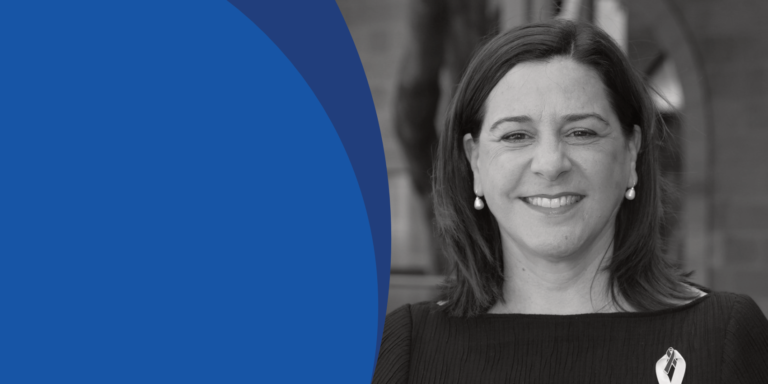
RSA questions WA government about schools wellbeing pilot program
The Rationalist Society of Australia is seeking answers from the West Australian government on the status of the pilot program that allows a government school
Governments at all levels – local government, state and territory government, and the federal government – are funding and operating chaplaincy programs in public schools across Australia.
While the chaplains appointed to these roles perform the work of student welfare officers and pastoral carers, the positions remain restricted to people from religious backgrounds.
The federally funded National School Chaplaincy Program (NSCP) directs more than $61 million each year to state and territory education departments. The education departments typically enter into contracts with providers who then employ chaplains to work at schools under the direction of the school principals.
These third-party providers are overwhelmingly Christian organisations and their job advertisements limit school chaplain roles to candidates who have ties to Christian churches and who have qualifications in theology and Christian ministry.
As a result, non-religious Australians – and even many people of minority faiths – are barred from becoming chaplains in public schools. In only allowing for people with a particular religious affiliation to be appointed to the chaplaincy roles, the taxpayer-funded NSCP is discriminating on the basis of religion.
At a state level, some education departments – such as in Western Australia – are directing millions of dollars in additional money to the program. Many local councils are also contributing thousands of dollars to religious chaplains in their local public schools.
At a national level, we’re campaigning for the discriminatory hiring practices to be removed from the NSCP and for the program to be expanded to include for the provision of suitably qualified and experienced youth welfare workers, regardless of religious or non-religious affiliation.
We’re also calling for the program to allow schools to hire the student welfare and pastoral care workers directly, rather than through outsourcing arrangements. The current outsourcing model for the NSCP diverts federal funds to the support of the operations and profitability of religious labour-hire organisations.
Around the states, we have been in correspondence with a number of state equal opportunity/human rights commissions – such as in Queensland, Tasmania, Victoria and Western Australia – to raise with them the religious-based discrimination taking place within the chaplaincy program. As a result, a number of these commissions have raised concerns about the religious-based discrimination in the program.
Queensland
In response to our December 2020, Queensland Human Rights Commissioner Scott McDougall advised us that he would write to the Department of Education to “suggest changes [to the school chaplains program] addressing potential contraventions of the [Queensland’s Anti-Discrimination] Act”.
Tasmania
In response to our complaint in late 2020, the state’s Equal Opportunity Commission wrote to the state education department seeking an explanation into the hiring practices involved in the chaplaincy program. In FOI documents obtained by us, the Secretary of the Department of Education, confirms that the federally funded positions allow for only religious people to apply.
Victoria
In 2018, we provided support to a non-religious school chaplain, Juliette Armstrong, to bring a discrimination claim against a chaplaincy provider organisation and the Victorian Department of Education and Training.
When Juliette’s contract expired, she was unable to find another school chaplain job because all the jobs currently advertised required applicants to be Christian, even though the jobs were for placements in government schools. She commenced proceedings in the Victorian Civil and Administrative Tribunal (VCAT), arguing that the provider had contravened Victoria’s laws against religious discrimination and that the Victorian Department of Education and Training had contravened Victoria’s laws against authorising or assisting religious discrimination. The case settled.
In early 2019, the Victorian Department of Education and Training changed its chaplains policy documentation to expressly provide that non-religious people are eligible to be employed as school chaplains. However, a number of chaplaincy providers continue to limit government school chaplaincy positions to Christians, and the Victorian Department of Education and Training appears to turn a blind eye to this.
Western Australia
Early in 2021, we wrote to the state’s Equal Opportunity Commission to point out that the selection criteria for taxpayer-funded chaplaincy roles being advertised for WA public schools were discriminating against non-Christians. In reply, Commissioner John Byrne agreed with the suggestion that the practice of restricting chaplaincy positions to Christians constituted “prima facie religious conviction discrimination”.
There are a number of ways you can help us make an impact.
You can contact your state education minister or your federal member of parliament to raise your concern about the discriminatory nature of the school chaplaincy program.
You can donate to our RSA Fighting Fund so we can pay for advertising to build public awareness of this issue.

The Rationalist Society of Australia is seeking answers from the West Australian government on the status of the pilot program that allows a government school

Advocates for secular public education are stepping up the pressure on the West Australian government to put an end to the funding of religious chaplains

Public school communities across Western Australia could send a clear message to the state government this weekend that they want wellbeing support roles to be

The federal education department is masking ongoing religious-based discrimination in chaplaincy roles in the National Student Wellbeing Program (NSWP) through inadequate reporting processes, says the

The chaplaincy and pastoral care capabilities of many faith-based schools that receive millions of public funding under the National Student Wellbeing Program (NSWP) appear to

The Rationalist Society of Australia has warned the Queensland government that its decision to fund religious chaplains to operate in its public schools will breach